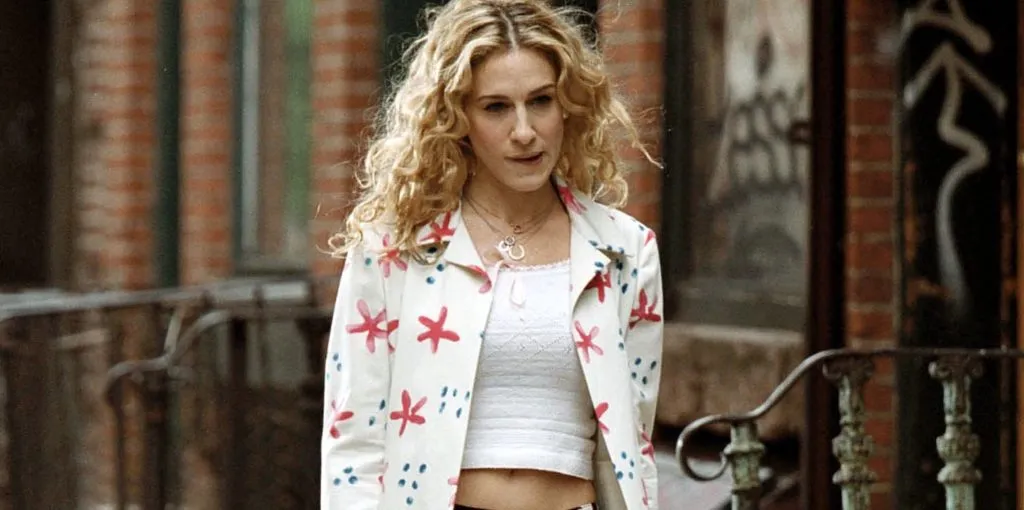The Double Standards of Television: Sarah Jessica Parker Calls Out Gender Bias in Character Judgments

Sarah Jessica Parker, renowned for her iconic role as Carrie Bradshaw in Sex and the City, recently spoke out about a persistent issue in television: the stark double standards applied to male and female characters. In a candid statement, Parker observed, “A male lead on a show can be a murderer, and people love him. If a woman has an affair, behaves poorly, or spends money foolishly […] there’s a kind of punitive response to it.” Her words shine a spotlight on a cultural phenomenon that has long frustrated critics, scholars, and fans alike—why are female characters judged so harshly for their flaws while male characters are celebrated for theirs?
The Antihero Worship: Male Characters Get a Pass
Television has no shortage of morally complex male leads who captivate audiences despite their egregious actions. Characters like Tony Soprano (The Sopranos), Walter White (Breaking Bad), and Dexter Morgan (Mad Men) are prime examples. These men commit murder, betray their families, and wreak havoc, yet they remain beloved as “antiheroes.” Tony Soprano, a mob boss who orders killings while grappling with panic attacks, is lauded for his depth and vulnerability. Walter White’s descent into the drug trade is seen as a tragic tale of ambition. Even Don Draper, a chain-smoking philanderer and compulsive liar, is admired for his charisma and existential angst.
Why do these characters resonate so deeply? Media scholars argue it’s because their flaws are framed as signs of complexity, a hallmark of compelling storytelling. A 2020 study from the University of Southern California found that 72% of male TV protagonists with morally ambiguous traits were described by viewers as “relatable” or “layered,” compared to just 45% of female characters with similar traits. Male antiheroes are allowed to be messy, dark, or outright criminal, and audiences reward them with loyalty and fan theories on X.
The Punitive Lens on Female Characters
Contrast this with the treatment of female characters. Parker’s own Carrie Bradshaw is a case study. As a fashion-loving, romance-chasing writer in Sex and the City, Carrie’s flaws—impulsive spending, infidelity, and occasional selfishness—sparked intense backlash. Fans and critics alike labeled her “frivolous,” “irresponsible,” or “unlikeable,” despite her vulnerability and growth over six seasons. Similarly, Skyler White in Breaking Bad faced vitriol for opposing her husband’s criminal empire, with fans calling her a “nag” or worse, even though her actions were rooted in protecting her family.
This pattern extends across genres. Carmela Soprano (The Sopranos), who tolerates her husband’s mob life but struggles with her complicity, is often criticized as “hypocritical.” Kendall Roy (Succession), a female corporate shark, is slammed as “cold” or “unrelatable,” while her male counterparts are praised for their ruthlessness. The 2018 Geena Davis Institute study underscores this disparity: 63% of female TV characters with moral ambiguity were judged more negatively than male counterparts, even when their actions were comparable in scope or intent.
Why the Double Standard?
The roots of this bias lie in societal expectations around gender. Women are traditionally held to higher standards of morality, nurturing, and selflessness. When female characters deviate—like Carrie splurging on Manolos or Skyler having an affair—they’re seen as betraying these norms, triggering a “punitive response,” as Parker puts it. Male characters, however, operate under looser expectations. Their transgressions are often framed as rebellion against a flawed system, making them sympathetic or even aspirational.
Dr. Emily Chen, a media psychologist, explains, “Audiences project cultural ideals onto characters. Men are allowed to be flawed because it’s seen as human; women are expected to be virtuous, so their flaws feel like a betrayal.” This is amplified by writing and framing. Male antiheroes often get redemptive arcs or sympathetic backstories, while female characters’ mistakes are magnified without context. For instance, Walter White’s cancer diagnosis softens his descent, but Skyler’s fear and entrapment are rarely framed with similar empathy.
The Fan Perspective: X Weighs In
The conversation around gender bias in TV is alive on X, where fans and critics dissect character reception. A recent thread with over 10,000 engagements noted how male characters like Joe Goldberg (You), a literal stalker, are romanticized, while female characters like Love Quinn, who mirror his obsessive traits, are demonized. Another user tweeted, “Men on TV can burn the world down and get a fanbase; women make one messy choice and get hate threads.” These discussions often cite shows like Fleabag or The White Lotus, where complex women are polarizing, while male counterparts skate by.
A Call for Equity in Storytelling
Parker’s critique isn’t just challenge audiences—it’s a wake-up call for creators. While shows like Fleabag, I May Destroy You, and The Undoing have pushed for nuanced female leads, the industry still leans heavily on tropes that punish women for imperfection. Writers can bridge this gap by giving female characters the same depth as men—backstories, motivations, and arcs that invite empathy rather than judgment. Audiences, too. By questioning why we cheer for Tony Soprano but jeer at Carrie Bradshaw, we can confront our biases.
Conclusion
Sarah Jessica Parker’s observation about double standards in television strikes at a deeper truth about how we consume stories. Male characters are granted the luxury of complexity, while female characters face a harsher lens for human flaws. As television evolves, the challenge is clear: create and embrace female characters who are as messy, flawed, and beloved as their male counterparts. Until then, Parker’s words remind us to check our biases the next time we judge a woman on screen for daring to be imperfect.






